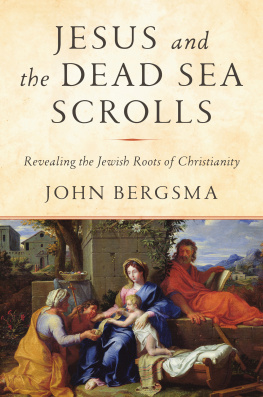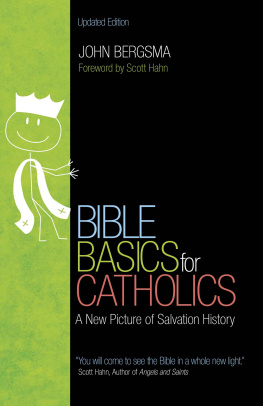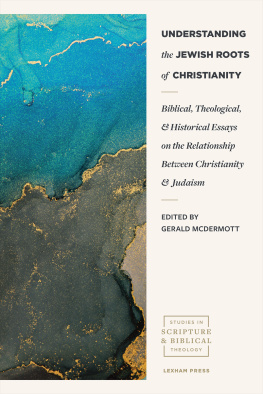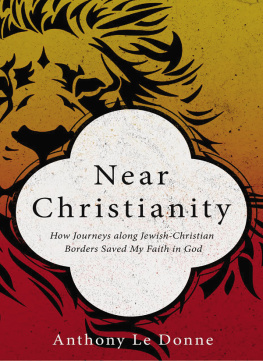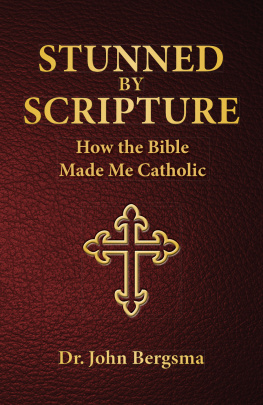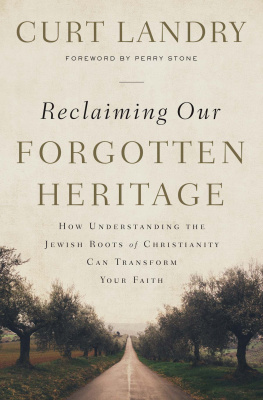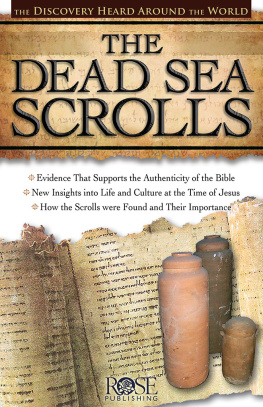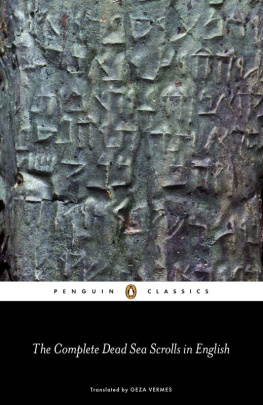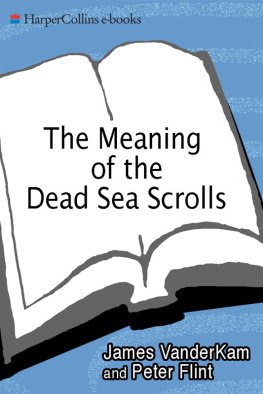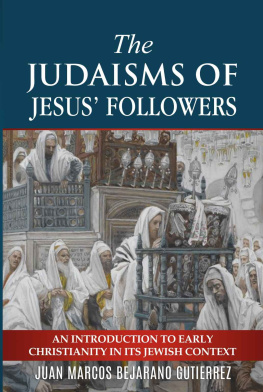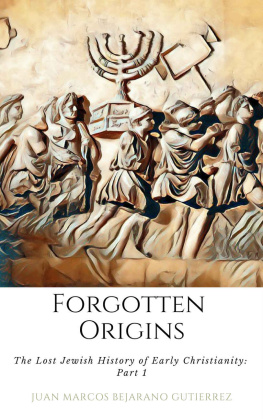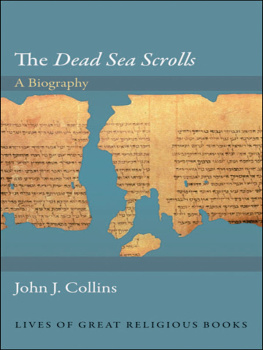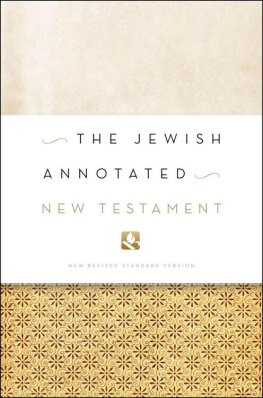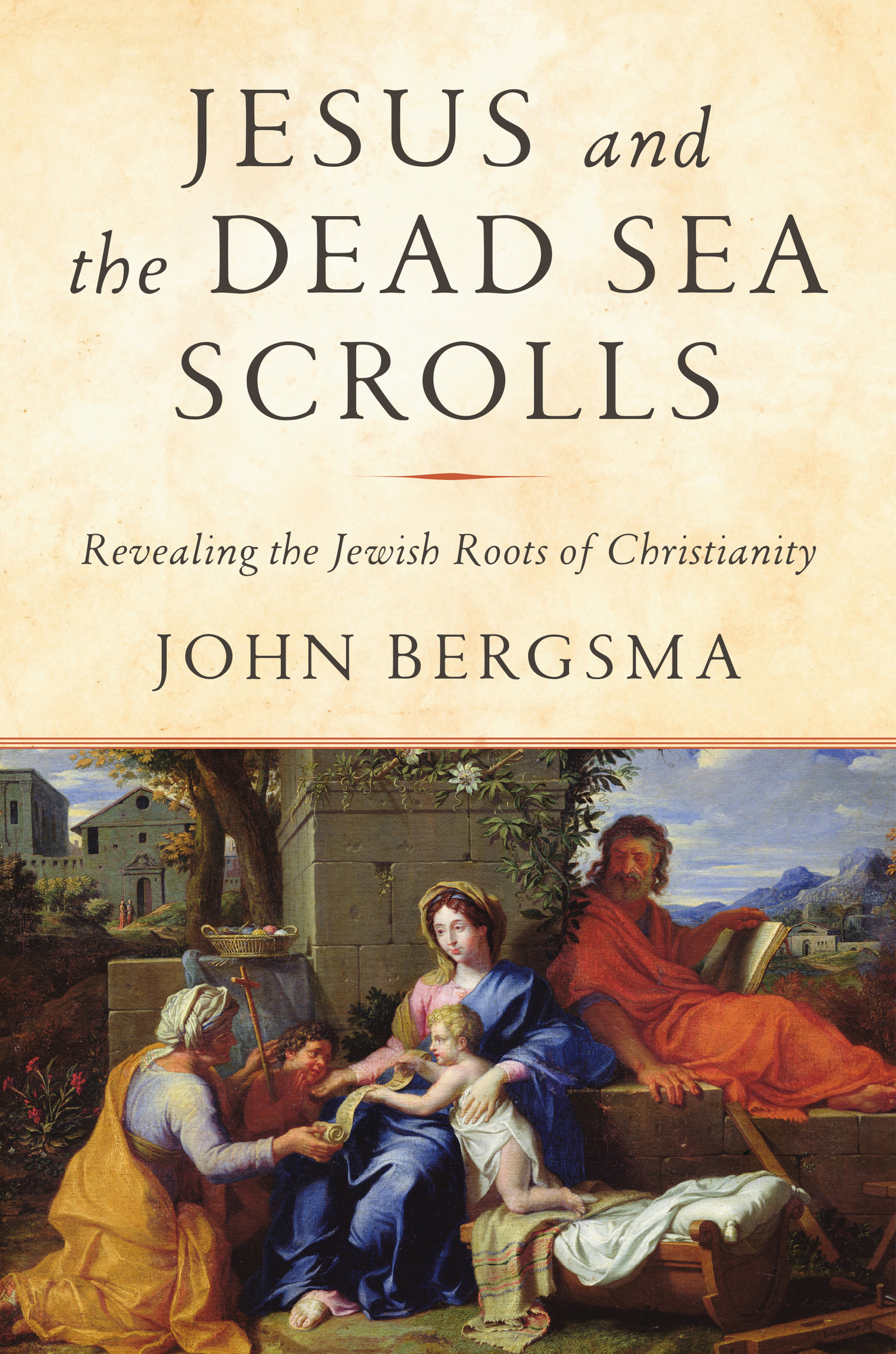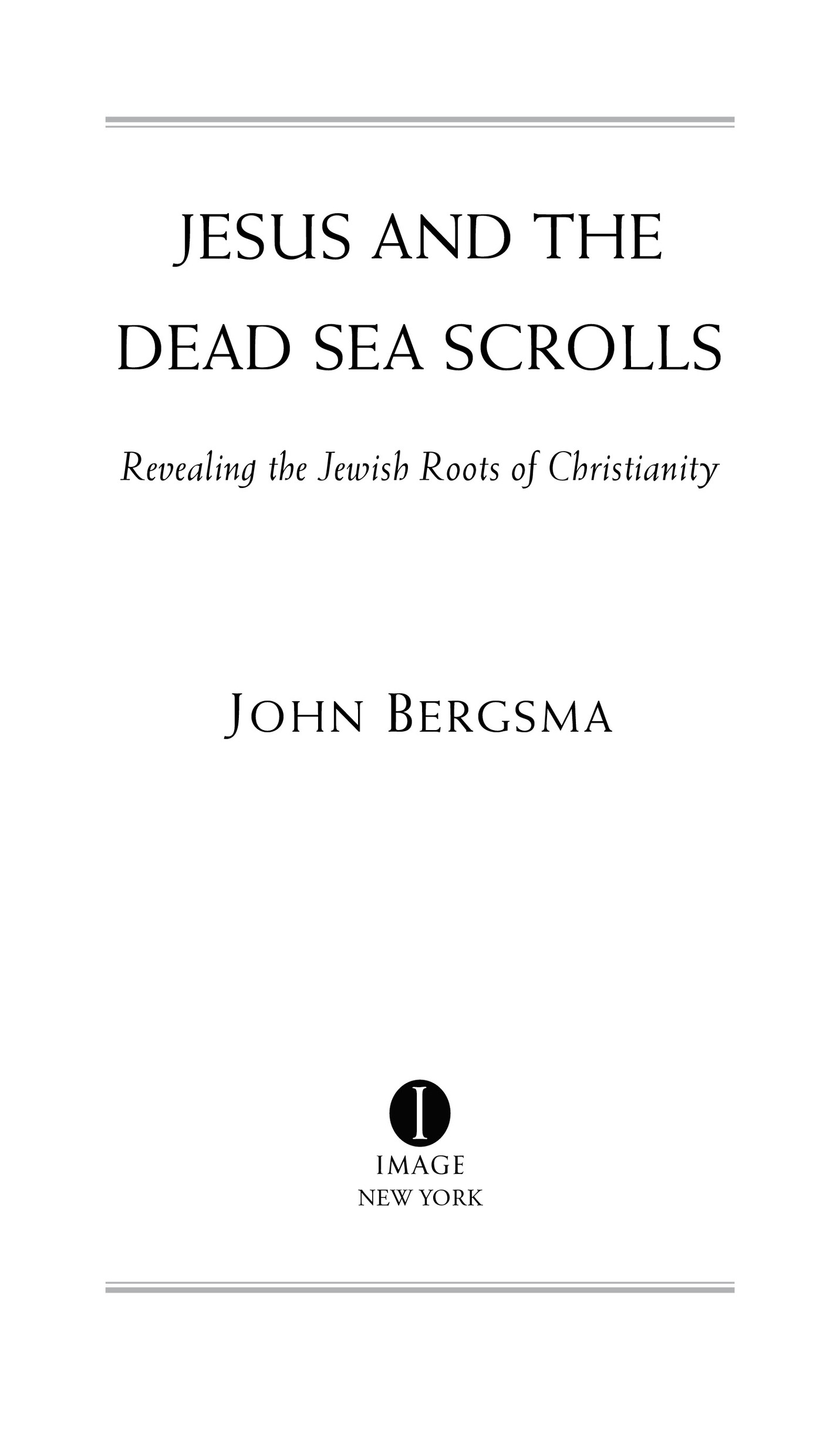All rights reserved.
Published in the United States by Image, an imprint of Random House, a division of Penguin Random House LLC, New York.
IMAGE is a registered trademark and the I colophon is a trademark of Penguin Random House LLC.
Library of Congress Cataloging-in-Publication data is available upon request.
Introduction
About two thousand years ago, a holy man arose among the Jews of Palestine. He gathered around himself disciples and founded a community based on what he called the new covenant between God and Israel. Entrance to this community was through a ritual of water washing in which the Holy Spirit forgave ones sins. After the death of the founder, the community continued to celebrate a daily meal of bread and wine, as they awaited the return of the Son of David and the coming of the kingdom of God.
The story sounds familiar, but we are not talking about Jesus and the Church. The holy man we are discussing is a mysterious figure known as the Teacher of Righteousness, and the community he founded made its home at a place called Qumran on the northwest shore of the Dead Sea. Thousands of years later, in the caves around Qumran, we would discover the remains of their library, which we call the Dead Sea Scrolls.
How could two such similar communities arise at about the same time in the land of Israel? And what is the relationship between the two? Did one come from the other? Did Jesus imitate the men at Qumran, and is Christianity a copycat phenomenon? Those are some of the questions we hope to address in this book.
One of the most interesting aspects of the Dead Sea Scrolls for modern readers is the light they shed on the time period of Jesus and the early growth of the Church. The Scrolls are the only Jewish documents we possess that were physically copied during the lifetime of Jesus or even earlier. They provide an amazing window into the thoughts and practices of a very devout Jewish religious community that was flourishing at the same time John the Baptist, Jesus, Paul, and the other apostles were active in Israel and the early Church was growing.
My purpose in this book is to use the Scrolls to give us a window into the thought and practice of the Judaism of Jesus day. After nearly twenty years of studying and teaching about the Scrolls, Ive become convinced that they illuminate many passages of the New Testament that are otherwise confusing or hard to understand. They also help us to see how many of the beliefs, teachings, and practices of early Christianity are much more firmly rooted in Judaism and the Old Testament than we have generally recognized. This material needs to be better known by both believers and unbelievers alike, because it can debunk a great deal of misinformation about the nature of this remarkable movement in human history we call Christianity or the Church.
One piece of misinformation that the Scrolls debunk is the idea that large parts of the Gospels must have been invented by second- and third-generation Christians and then written back into the life of Jesus. While few practicing Christians believe this, it is a view often found among scholars. For example, scholars used to date the entire Gospel of John around A.D. 160, because they did not believe its language or its picture of Jesus could have been composed by a Jew of Jesus own lifetime. The Scrolls help us to see the same thing about many other books, stories, and teachings of the New Testament. They enable us to look through Jewish eyes at the New Testament documents and the early Church, recognizing them as thoroughly embedded in the religious world of first-century Israel.
Since the purpose of this book is to help modern Christians (and other interested persons) understand the light the Scrolls shed on the origins of the Christian faith, I begin with a general overview of the discovery and contents of the Scrolls, and then organize the rest of the book around the central practices of Christianity. The early Christians called these practices the mysteries (Greek mysteria), a term later translated into Latin as sacramenta, giving us the word sacraments. The various modern Christian denominations number and order the sacraments differently, but I have structured this book around four commonly recognized ones: Baptism, Eucharist, Matrimony, and Holy Orders. In each part of the book, the goal will be to use the Scrolls to help us better understand ancient Judaism, the New Testament, and the origins of these Christian practices. Finally, since the Church itself has been called a mystery and even the universal sacrament of salvation, the last part of the book allows the Scrolls to shed light on the Church itself as a sacred society offering salvation to its members.
Ultimately, this exploration is not merely an exercise in intellectual curiosity for me. Any way one looks at it, Christianity is an amazing human phenomenon. Over 2 billion peopleabout one in every three on the globeclaims some kind of relationship with a two-thousand-year-old Jewish teacher from Nazareth named Jesus. All these people have inherited from Jesus certain common practices, like sacred washing in water (Baptism) and a ritual meal of bread and wine (Eucharist). But there is a remarkable diversity in the understanding of what these practices mean. I myself am something of an American Christian mutt, having worshipped in a wide variety of churches in my upbringing. In some churches I belonged to, Baptism was an optional, symbolic profession of ones faith in Jesus performed by adults. In other churches, Baptism was an infusion of the Holy Spirit absolutely necessary for salvation, and therefore performed even on infants. I have been in churches where communion was a quarterly ceremony in which Wonder bread and grape juice were consumed to remember Jesus, and in churches where the holy sacrifice of Calvary under the appearance of bread and wine was the central act of every worship service. Most Christians have a sense that this disagreement over the meaning of even these basic practices of our faith is at best unfortunate and at worst tragic. The Scrolls are not going to solve those differences, but they will help us better understand how Jesus, the Apostles, and the first generation of Jewish Christians understood their faith and its rituals. My hope is that this may become a place of common ground, or at least a common starting point, for contemporary Christians to move toward unity in their faith and practice.
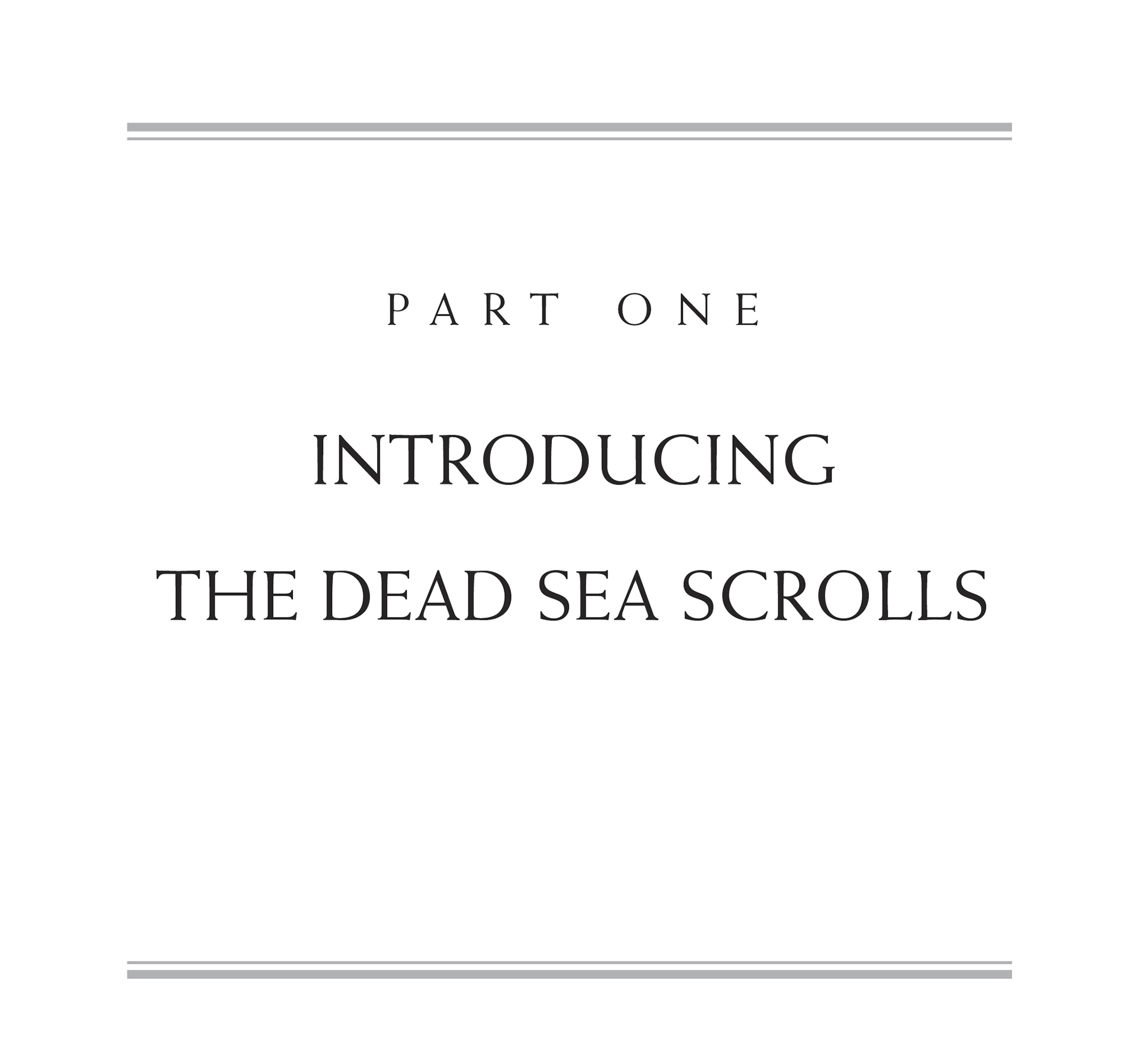
CHAPTER 1
The Archeological Find of the Twentieth Century
For good reason, the discovery of the Dead Sea Scrolls has been called the greatest archeological find of the twentieth century. They were hoping to find gold, and were disappointed with the three old scrolls they found in a jar. They couldnt realize, of course, that one of the scrolls they found was a complete and nearly pristine copy of the Book of Isaiah in Hebrew, dating to around 125 B.C. , or about

